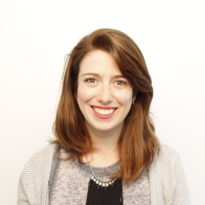The most common question people ask when they begin the Designing Desirable Futures experience is ‘How can I predict the future?’ We have been taught to plan strategies for our businesses to try and control future outcomes. However, our answer to that question and approach is that we cannot predict the future. Instead we should imagine the type of future we want to live in and start building the road to get there.
We are living through an important time when people are seeing how futile it is to try and predict the future. It would be difficult for most of us to predict what is happening now with the impact of COVID-19. Once we let go of the idea of predicting the future, we can move onto the central premise of our work within the Designing Desirable Futures experience.
In our first sessions we explore the concept of creating the future instead of predicting it. We are all creating our futures every day, through the steps that we are taking. These steps will eventually lead us somewhere. And if we choose different steps, we will get different outcomes.
We must think about the impact of our actions. Everything we do has a consequence. At the start of the learning experience we ask questions such as where do you want to go with your career? How do you want to live? What kind of legacy do you want to leave with your work?
We start with building a vision of the future that you want to live in, a future that you desire for the health of yourself, your community and the planet. And then we move into how to get there. This is an interesting road, because it is not a straight line.
To get to the future that we are designing we must create a path. It is important to understand that this path will change and that is natural. When you focus on the broader vision of what you want for the future, it doesn’t matter how you get there. The path will change. This is because it is a path and not a plan. A path works like a suggestion, it can change as long as we arrive where we want to be.
Once someone understands this, they begin to see the impact they can have on society. Many of us think I’m just one person, I can’t make change by myself. This is a major turning point for participants on this journey. We can have an impact on our friends, family and the broader community around us. We can make positive changes for the future.
Past Designing Desirable Futures participant, Raquel Chamis of Rio de Janeiro, completed her learning journey in 2019 and has quickly made changes to her life and business.
Raquel shared some of her insights from learning these new methodologies. As part of her course work, she conducted interviews with people about the type of future they wanted for Rio de Janeiro. She learned that people held similar opinions on what would make a good city to live in. What differed was their thoughts on the best pathways to get to this new future.
“Realising those differences helped me find new ways to speak with people in times of political polarisation. I learned how to value the common viewpoints, especially in diverse populations,” Raquel explained.
Raquel is the founder of CORA, a sustainable fashion consultancy. She has incorporated the learnings from designing desirable futures into her ongoing business practice with her clients to create a more sustainable fashion industry. The ability to detach herself from the present moment to imagine new possibilities for society is now a key process in all her projects.
“The learnings I took from the course helped me create transformational journeys for companies focusing on creating sustainable societies, which is one of CORA’s main goals. The methodology of designing desirable futures helps us to build alternative models, bringing us closer to creating new realities,” Raquel shared.
The process of working towards a future you desire is well within the reach of anyone. We all want better opportunities and quality of life for ourselves, our families and the world. And there has never been a better time to start understanding the influence and impact you can have on your community.
Contact us for more information on our learning experience, Designing Desirable Futures or sign up here.
—
Follow us on social
Instagram – Facebook – LinkedIn – Youtube – Spotify
How Can We Help?
- For training and Innovation Journeys in your company: check out our in-house course offering.
- For upcoming courses in your region: visit our website.
- For upcoming events in your region: look at our event calendar.
- If you have a special project and would like to use Echos’ consultancy services: send us an email.
- Want to speak to a real person? Call us on 1300 502 006


